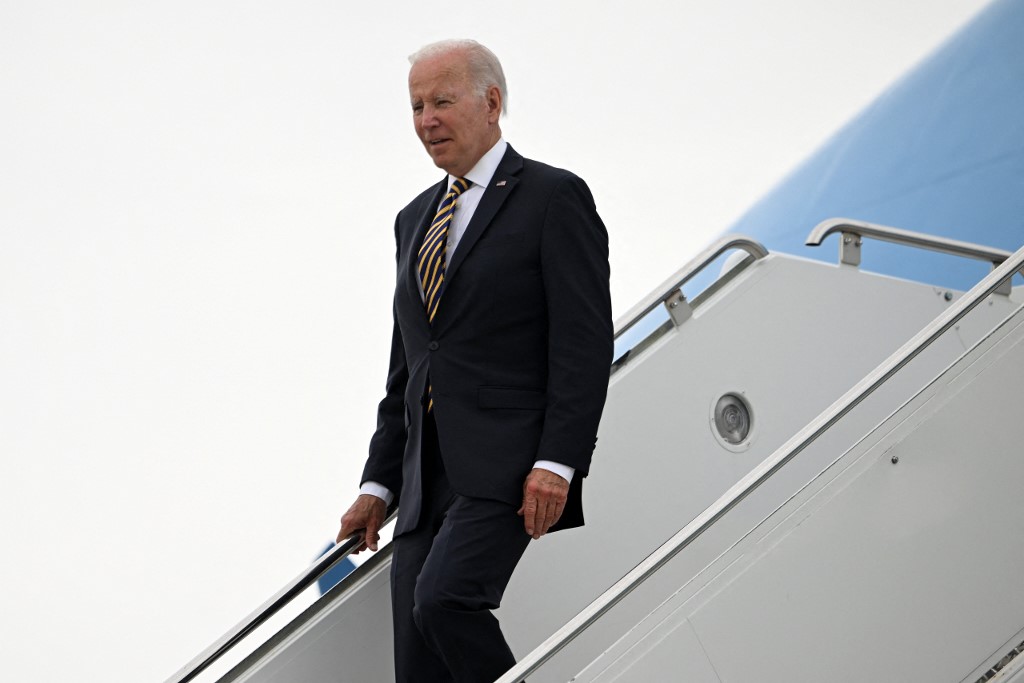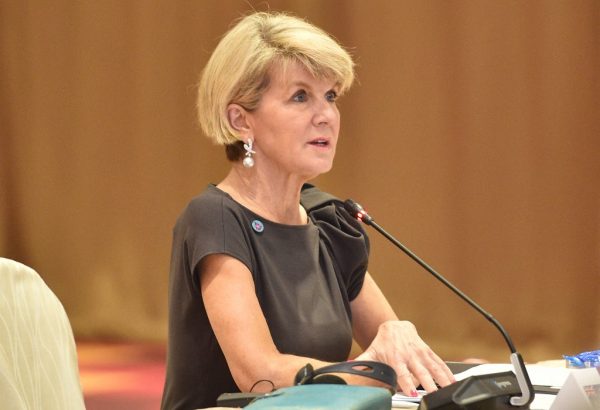Biden’s APEC no-show seen as a blow to Thai government’s credibility

US President Joe Biden’s decision to skip the Asia Pacific Economic Cooperation (APEC) Summit in Thailand in November is a reflection of the Thai government’s weak international image and the fallout of a democracy deficit, many political observers believe.
“The decision comes as a bolt from the blue, destroying the dream of Prime Minister Prayut Chan-o-cha who had hoped to exploit the presence of world leaders at the APEC Summit for political gains,” says Prof Ukrist Pathmanand from Chulalongkorn University’s Institute of Asian Studies.
Biden reportedly informed the Thai embassy in Washington that Vice President Kamala Harris would represent the US at the summit on November 18-19 in Bangkok.
Biden’s absence could be viewed as pressure on Thailand over the state of domestic democracy, according to a senior official at the Foreign Ministry who spoke on condition of anonymity.
The US administration has made clear that it wants to see Thailand make progress in democracy development to become a role model in the region, but the hearing in the Constitutional Court regarding Prayut’s tenure as prime minister under the new charter was not what Washington would have liked to see, he said.
“A minority in the ministry is interpreting the US decision as Washington not wanting Prayut to hog the limelight from Biden’s presence at the APEC Summit, if the court rules at the end of this month in his favor to stay on as prime minister,” the official said.
While concerned officials were making all necessary preparations regarding hospitality for the APEC meetings, Prayut, who staged a military coup to topple an elected civilian government in 2014, is struggling to survive a court battle to stay in office beyond the eight years allowed under the junta-sponsored charter.
Mission accomplished at G20
To the disappointment of the Thai elite, Biden has confirmed his attendance at the Group of 20 (G20) summit in Bali, Indonesia on November 16-17 before rushing back home to attend the wedding ceremony of his granddaughter at the White House on November 19.
“It simply means that his family for him [Biden] is a priority, not bilateral relations with a longtime treaty ally in Southeast Asia like Thailand,” Ukrist told Thai PBS World in an interview.
His attendance at the G20 summit will already fulfill Biden’s mission to Asia, as the Bali meeting would give him a chance to meet with or at least sit at the same forum with all his rivals, including China’s President Xi Jinping and Russia’s President Vladimir Putin, he said.
“President Biden could address all the issues he’s interested in at the G20 and he does not need to repeat the same messages at the APEC in Thailand,” the professor said.
G20 brings together leaders from 20 major countries from all continents: Argentina and Brazil from South America; Canada, the US and Mexico from North America; France, Germany, Italy, the United Kingdom, and European Union from Europe; Saudi Arabia and Turkiye from the Middle East; South Africa from Africa; China, Japan, India and South Korea from Asia; Indonesia from ASEAN, Australia, and more importantly Russia, which is waging a war on Ukraine.
Unlike Prayut, who has kept himself busy mostly with domestic affairs, Indonesia’s President Joko Widodo exercised his G20 chairmanship in late June to meet with and invited both Putin and Ukrainian President Volodymyr Zelenskyy to visit Indonesia during the summit. Widodo himself confirmed that all major leaders, including China’s President Xi, would be in Bali.
APEC, however, comprises 21 members mostly from Asia and the Pacific. It focuses mostly on economic cooperation. Members like Taiwan and Hong Kong are not sovereign entities as China considers them a part of its one-China policy.
France’s President Macron invited to APEC meeting in November
Thailand has no role
Deputy Prime Minister Don Pramudwinai said he had continued to make attempts to have President Biden attend the APEC Summit, as it could offer the American leader a forum to ease tensions with China’s Xi over Taiwan and with Putin over the war in Ukraine, although the government in Bangkok has never shown its intention to facilitate dialogue. The presidents of China and Russia have yet to officially confirm their participation at the APEC Summit.
Don’s initiative might not have been attractive enough to woo the US president. Prayut’s government has never presented itself as an honest broker in any conflict.
Washington could not count on Thailand on the Taiwan issue either, as the leaders in Bangkok have sent strong signals that they are closer to Beijing and follow a one-China policy, according to Ukrist.
Moscow still views Thailand as a friendly country although the Thai permanent representative at the United Nations once voted to condemn Russia’s invasion of Ukraine.
Ukrist said Thailand is no longer in a position to play any significant role amid the rapid geo-political changes, compared to other ASEAN members, notably Vietnam, which is also an APEC member.
The Biden administration obviously has paid more attention to Vietnam for the balancing act with China, as Hanoi is at loggerheads with Beijing over the contentious South China Sea issue. Senior officials in the Biden administration, including Vice President Harris and Defense Secretary Lloyd Austin chose Vietnam for their first Asian tours early this year.
“Economically speaking, too, Vietnam is very attractive for investment due to its stability and fast-growing economy,” he said. Prayut’s poor management over the past years also forced many foreign investors from APEC economies such as Japan and South Korea to relocate to Vietnam.
Myanmar issue
The crisis in the neighboring country also casts a shadow over US-Thailand bilateral relations. Washington has never been satisfied with Thailand’s role in putting pressure on the Tatmadaw — the Myanmar military — to cease violence and provide humanitarian assistance to the people in Myanmar, according to Ukrist.
The new US ambassador to Thailand, Robert Godec, said during testimony in the Senate for his confirmation that he would work with the government in Bangkok to mount pressure on Myanmar’s junta to cease horrifying atrocities against its own people.
Washington has imposed sanctions against leaders of the State Administration Council after army chief Min Aung Hlaing staged a coup to topple the elected civilian government of Aung San Suu Kyi last year. The US administration has wanted Thailand to play a significant role in helping ASEAN implement the five-point consensus reached to end the violence and free political prisoners.
Quite to the contrary, Bangkok has done business as usual with the junta and taken a soft stance towards the military crackdown on dissidents and armed ethnic groups along the border.
By Thai PBS World’s Regional Desk






